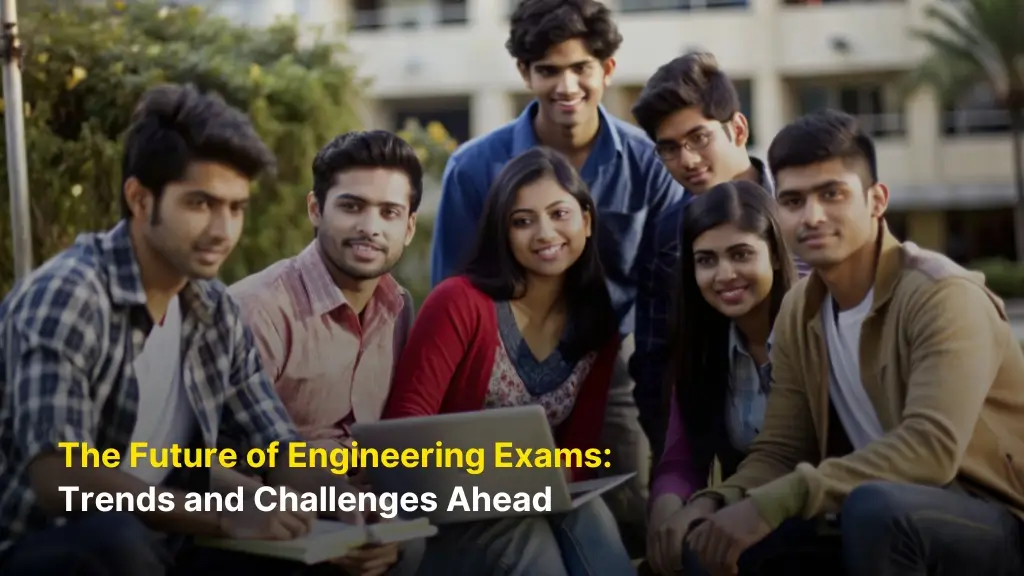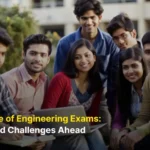Engineering has always been one of the most sought-after careers in India. But as technology advances and academic systems evolve, engineering entrance exams are transforming too. From AI-based evaluations to adaptive question papers, the future of these exams looks more dynamic — and more demanding — than ever before.
For aspirants preparing for JEE Main, JEE Advanced, or CET, staying updated with these changes is crucial. At Suresh Dani Classes, we continuously track these developments to help students prepare smarter, faster, and more confidently.
Let’s look at what lies ahead for engineering entrance exams, and how you can stay ahead of the curve.
The Changing Nature of Engineering Entrance Exams
Over the past decade, engineering entrance exams have evolved from static paper-based tests to high-tech, computer-based assessments. But the changes go deeper than just the mode of testing.
Students today face exams that:
- Focus more on conceptual clarity than rote memorisation.
- Include application-based and integrated questions that link topics across Physics, Chemistry, and Mathematics.
- Feature data interpretation and experimental reasoning, testing real-world problem-solving skills.
- Are conducted in multiple sessions and adaptive formats, to ensure fairness and accuracy.
These trends suggest one clear direction — engineering entrance exams are becoming more analytical and skill-driven.
Emerging Trends Shaping Engineering Entrance Exams
Here’s a quick overview of how these exams are changing and what students should prepare for in the coming years:
| Trend | What It Means | How to Prepare |
|---|---|---|
| Adaptive Testing | Question difficulty adjusts based on student performance | Focus on conceptual mastery, not memorisation |
| AI-based Evaluation | Automated scoring systems assess logic and consistency | Practise structured reasoning and clarity in answers |
| Integrated Question Design | Physics, Chemistry, and Maths questions linked conceptually | Strengthen connections across topics |
| Greater Weightage to Class 12 Syllabus | Encourages alignment with school learning | Balance board and entrance exam preparation |
| Increased Use of Analytics | Performance data shapes student ranking and insights | Use test analytics to track and improve performance |
Each of these trends highlights the growing importance of critical thinking, adaptability, and conceptual understanding in modern preparation.
The Key Challenges Ahead for Students
As engineering entrance exams become more advanced, students will face a new set of challenges:
- Information Overload: With multiple exams (like JEE, CET, BITSAT, VITEEE), students often struggle to prioritise topics and resources.
- Changing Patterns: Frequent syllabus or exam format updates demand flexible study plans.
- Time Pressure: Managing simultaneous board exams and entrance preparation remains a constant challenge.
- Competition: The number of aspirants continues to grow, making consistency and focus more important than ever.
But the good news is — with the right strategy and guidance, every challenge can become an opportunity for growth.
How Students Can Stay Ahead in Engineering Entrance Exams
Success in future CET engineering entrance exams will depend not just on intelligence, but on preparation strategy. Here’s how you can gain an edge:
1. Build Strong Fundamentals
Conceptual learning is your best weapon. Focus on truly understanding why and how principles work. This helps you adapt easily to new question formats.
2. Embrace Technology in Learning
Use online quizzes, virtual labs, and digital mock tests to simulate real exam conditions. Familiarity with computer-based exams is an advantage.
3. Track and Analyse Your Performance
Monitor progress through performance analytics tools — or platforms like those used at Suresh Dani Classes — to identify weak areas and improve accuracy.
4. Prepare with Integrated Study Plans
Align your Class 11–12 syllabus with JEE and CET requirements. Integrated learning saves time and reduces overlap.
5. Focus on Problem-Solving
The future of engineering isn’t about memorising answers — it’s about solving complex, real-world problems. Challenge yourself with higher-order and mixed-topic questions.
The Role of Coaching in Navigating the Future
Self-study forms the foundation, but guided preparation can multiply results. At Suresh Dani Classes, we blend conceptual learning with smart analytics to help students stay ahead in engineering entrance exams.
Our approach includes:
- Integrated Learning: Board and entrance exam preparation combined seamlessly.
- Concept-Centric Classes: Focus on clarity and real-world application.
- Adaptive Testing: Regular mock exams modelled on evolving JEE and CET formats.
- Data-Driven Feedback: Personalised improvement plans using performance analytics.
This ensures students aren’t just exam-ready, but also future-ready.
Looking Ahead: The Future of Engineering Education
As engineering entrance exams become more analytical, engineering education itself is evolving. Future engineers will need to master AI, sustainability, and data-driven design — all built on the same foundations you’re studying today.
That’s why it’s vital to develop the right learning habits early: curiosity, analytical thinking, and persistence.
At Suresh Dani Classes, we prepare students not only to clear exams but also to thrive in their engineering journeys.
So if you’re serious about pursuing a future in engineering, join Suresh Dani Classes — where modern preparation meets timeless principles of learning.






